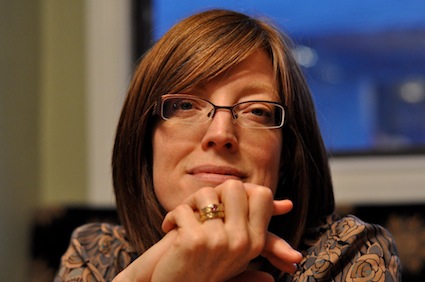
In January’s spotlight, we feature Jenny Nelson, an experienced technical writer, and an active member of the STC Alberta chapter for over 10 years. In 2016, when she relocates to Victoria, she will join the STC Westcoast chapter. In this interview, Jenny shares her experiences, and offers some tips to aspiring technical writers.
Question: How did you get started in technical writing?
Answer: Initially, I focused on communications in university, heading for a career in journalism. Many years, and several not-related-to-writing careers later, I decided to come back to what I love. I enrolled in the professional writing program at MacEwan University and was hired as a technical writer midway through the program.
Q: What is one of the most interesting projects you’ve worked on?
A: Honestly, everything I’ve worked on as a technical writer has been interesting, mainly because of the learning opportunities inherent in every new project. Research is a fundamental pleasure of this line of work for me. Over the past five years, I’ve developed a close relationship with a medical diagnostic device, having written every imaginable type of documentation for it, including how to take it apart and service it. That’s just fun!
Q: You recently had the exciting opportunity to travel to Germany on business. What opportunities exist for technical writers that seek to travel? What are your travel tips for technical writers?
A: It was a few years ago now, but, yes, I did spend two weeks working on a US army base in Germany. Additionally, I work remotely in my current position, and usually travel twice a year to Boston and Chicago for business meetings. So, you never know where a technical writing career will lead you! I have run into a number of writers who have moved from software documentation into training and implementation, both of which often afford the opportunity to travel.
The only travel tip I can think of is to know what type of connectivity you’ll have at your destination, since this will affect what you’ll need to bring to do your work. For instance, is there wifi in your hotel room, or only a wired connection? If you will be working in a satellite office, how will you connect to the office network? Always have a trusted IT person whom you can contact if things go sideways. And they often do.
Q: What parts of your job do you find most challenging?
A: At times, juggling multiple projects at once, all with tight deadlines, can certainly be challenging. But I think the biggest challenge for me is working remotely with teams in different cities. I spend a great deal of time working to remain visible, connected, and up to speed with changing decisions.
Q: What inspires or motivates you about the field of technical communications?
A: I often feel inspired by other writers in the company I work for, all of whom work tirelessly to produce excellent documentation for the medical field. I’m also inspired by knowing that the work that I do can make a difference to health professionals who use my company’s medical devices to save lives.
Q: What advice would you give to aspiring technical writers, and those new to the field?
A: I would say that staying connected to other writers, whether through the STC or by any other means, is the key to staying inspired, hearing about job openings, keeping up with changing technologies, and – crucially – having a forum for sharing nerdy grammar jokes.
